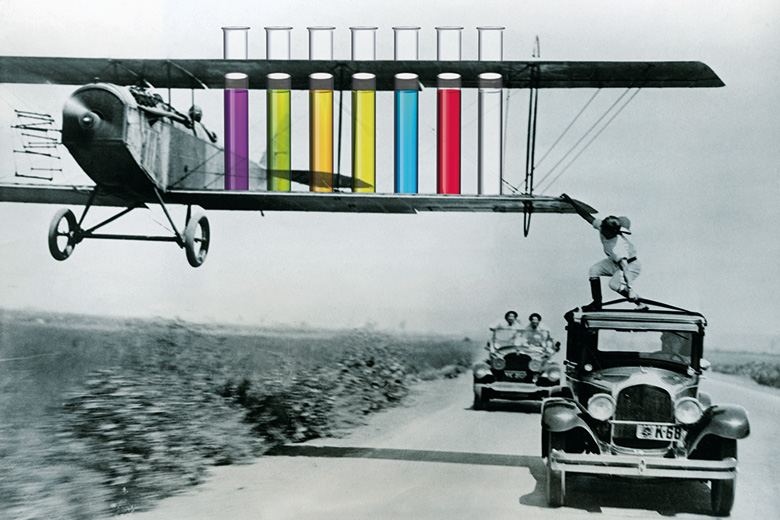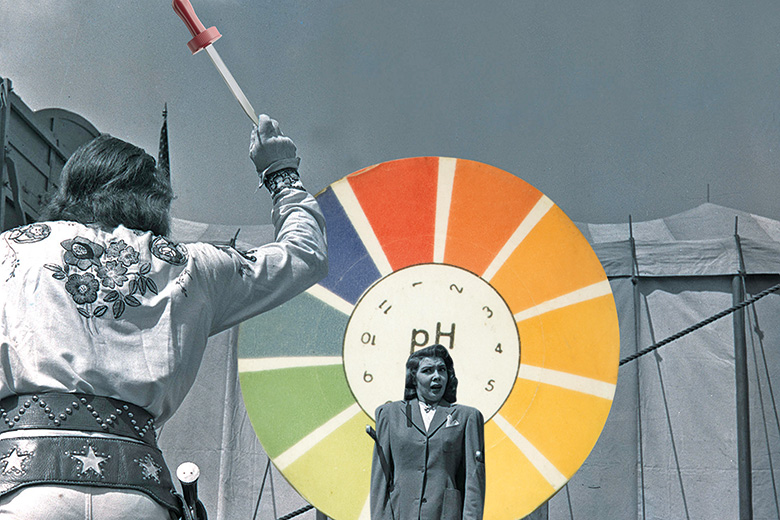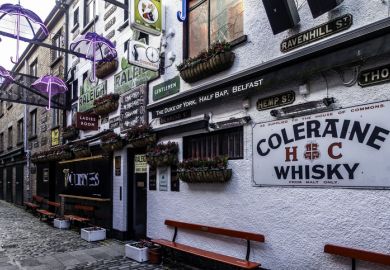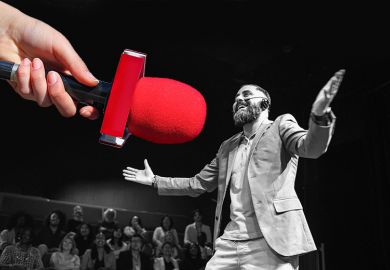These have been a sobering few months for the academy. Both its concerns and its expertise were dismissed by the campaigns for the UK to leave the European Union and for Donald Trump to be elected US president.
For science, the main issue in the UK is the likely loss of access to unique and prestigious EU funding streams post-Brexit. In the US, concerns centre on the Trump administration’s attitude towards science in general and climate science in particular. Fears on that latter score are already apparently being realised.
As the tide of populism continues to rise, academics have their say on what can be done to improve science’s social standing and boost its relevance to voters and politicians.
‘How we can decide whether to trust an expert? A recent study reports that expertise is not enough on its own’
It was probably the soundbite of the year. In the heat of the Brexit campaign, Michael Gove, the former UK education secretary, famously claimed that “people in this country have had enough of experts”.
The accuracy of that remark is certainly open to question. After all, an Ipsos Mori poll carried out at about the same time showed that “academics” (reasonable shorthand for experts) were ranked second only to “friends and family” as sources that people trusted on European Union referendum issues. Still, November’s selection of “post-truth” as the word of the year by the website Oxford Dictionaries only reinforces the sense that the public’s relationship to expertise is problematic – even if it is more complex than Gove’s naive comment implies.
The issue is critical because experts know and understand things that ordinary people do not. But even when experts (wearing their “public engagement” hats) try to teach us something about what they know, we often lack the necessary background to make sense of it. We are therefore forced to take their advice on trust.
The crucial question, then, is how we can decide whether to trust an expert. A 2015 study by Friederike Hendriks, a psychologist at the University of Münster in Germany, casts some light on this issue. Hendriks’ paper, “Measuring laypeople’s trust in experts in a digital age: the Muenster Epistemic Trustworthiness Inventory”, published in Plos One, reports that expertise – technical knowledge and understanding – is not enough on its own. We must also believe the specific expert in question to be honest and to have our welfare at heart.
We (or the media on our behalf) also have a duty to probe experts on the quality of experts’ expertise – their evidence, assumptions and methods – and to test any claim that their advice is impartial. But to do that we need to know something about who they are and how they behave – relative to normal scientific standards.
In practice, it is hard to learn much from the media about the working lives of experts. But there are two communication genres that do provide insight: documentary film and biography. In the latter category, there has been a recent spate of “work memoirs” that describe the feelings and attitudes, successes and failures of working “experts”. Authors have included surgeons such as Henry Marsh (Do No Harm) and Gabriel Weston (Direct Red: A Surgeon’s Story) and scientists such as neuroscientist Oliver Sacks (On the Move: A Life), physicist Jon Butterworth (Smashing Physics) and biologist Hope Jahren (Lab Girl).
But while biography is popular, it is not as popular as fiction. The corpus of what I call the “literature of working life” is small but potentially potent if it were more widely read. One good example in science is Primo Levi’s 1975 work The Periodic Table. This is a series of short, fictionalised memoirs that reveal much about working life in industrial chemistry (Levi’s primary profession). They are set in the mid-20th century, so technical details and social context are out of date, but universal features of a career in applied science do emerge. For instance, “Chromium” is a chemical detective story about correcting errors in an analysis protocol, which is leading to the production of faulty materials. The story reveals the often unlikely and unexpected reasons why such faults occur and how they can be corrected. And “Uranium” describes the feelings of a laboratory chemist uncomfortably deployed into the wider world of sales and customer support, for which he has no aptitude or training.
A more contemporary example is Pippa Goldschmidt’s 2015 short story collection, The Need for Better Regulation of Outer Space. Many of these stories explore aspects of scientific working life. A good example is “The Equation for an Apple”, which considers the dynamics of the international research teams fundamental to the conduct of modern science. Such teams are composed of people with different nationalities and cultural backgrounds, creating endless possibilities for misunderstanding, embarrassment and unfairness. Goldschmidt fictionalises the difficult real relationship between the brash young American Robert Oppenheimer (later the “father” of the atomic bomb) and his hosts at the Cavendish Laboratory at the University of Cambridge in the 1920s.
In addition to boosting public confidence in scientists, such literature could serve the parallel purpose, if it was studied as part of technocratic degrees, of developing students’ communication skills. These are as important for career success as cognitive intelligence and subject expertise – and they are, of course, the same attributes critical for nurturing public trust at later career stages.
For soft skills education, an enterprising publisher might edit a collection of existing short stories and extracts from novels, with accompanying notes about what the stories reveal. But this would probably look too much like a textbook for general readers; for them, it might be especially valuable for new material to be written.
It is, admittedly, far from clear how to make this happen. At Imperial College London, we considered setting up some form of writer-in-residence scheme but we could not find a way to fund it. The University of Bremen has been more successful with a scheme called “Fiction meets Science”, but this has as much emphasis on academic analysis of literature about science as on funding a writer-in-residence scheme.
Science funders worried about public trust would do well to reflect on this. Unless better funding streams can be secured, the potential for fiction to strengthen the public’s grasp of fact will not be realised.
Nicholas Russell is emeritus reader in science communication at Imperial College London.

‘We need to do more to demystify research. One way might be to open up PhD vivas’
Openness in science promotes the trust of the public and depends on it. It is not just about the results of science but also the process and context.
So what does open science really mean, and how can it be promoted? I started thinking about that question during August’s International Population Data Linkage Network conference in Swansea, where data privacy and security were widely discussed.
Regarding the use of health data – which has been a big bone of contention in the UK – a lay delegate encapsulated the mood: “Of course I am open to health research with my data. I just want to know what you are going to do with it. Keep it simple. Plain English. Don’t beat about the bush.”
The scientific literature suggests that his view is common. For example, a study of more than 5,000 patients and members of the public in 2011 found that 81 per cent supported use of their data in research (although 67 per cent preferred it to be anonymised). People generally support use of routine healthcare data in research, even in an “opt-out” model, provided that it is made clear to them how it will help. So we need to do more to demystify research.
One way might be to open up PhD vivas. I was in Denmark recently as an external examiner for a PhD student at Aalborg University. In common with several countries in Europe, Danish vivas are open to the public. They are openly advertised and this one was attended by 40 to 50 people, including laypeople with no connection to the candidate, the university or the topic. After a public presentation and critique from the panel of examiners, the audience had the opportunity to ask questions. Afterwards, they celebrated with the candidate over wine and canapés.
My co-examiner, a local physician, recounted how he and his wife had attended PhD defences in disciplines from philosophy and history to biology and geography. These experiences feel a long way from the situation in the UK. It is true that British theses are increasingly being deposited online but this is largely to improve access for other academics rather than the public. And although public engagement has received growing funding and interest in recent decades, the focus is rarely on the involvement of all people in every step of the scientific process.
It is also true that open access to medical research and its fruits may have unintended consequences. A few months ago, a lady in her twenties with a history of palpitations attended my cardiology clinic. Her main concern was to discuss the results of genetic testing that she had asked a US-based company to carry out on her. Her palpitations had subsided and her heart appeared to be normal, but she had been advised to “seek the advice of a medical practitioner” over elements of her test. The results were vague and bore little relevance to this lady’s future health, however. Open access to biomedical data had not improved her health or her knowledge, but may have led to unnecessary stress and inappropriate use of medical resources.
I asked her if she had been against the recently shelved UK proposals to use data from the NHS for care and research. She agreed with the critics who do not trust the NHS to manage it. She was concerned about the ways her genetic information might be used in future. Yet this had not stopped her from engaging in tests in the private sector, where her data are probably less secure and private. Not only does this case illustrate the tragic miscommunication around the NHS project, it also shows the importance of open information and discussion about the implications of research.
In Old English, “open” meant “exposed, evident, well-known, public”, according to the Oxford English Dictionary. However, even in the internet age, there is still a long way to go before science is truly open to the public. As advocated by the “open science” movement, openness requires open data, open methodology, open peer review, open access, open educational resources and open source research tools and software. But it also requires open discussion of the ways in which data are used, interpreted and ultimately translated for use in society.
Amitava Banerjee is senior clinical lecturer and honorary consultant cardiologist at the Farr Institute of Health Informatics Research, University College London.

‘Trust is likely to be closely connected to, if not a direct consequence of, how scientists communicate with the public’
Whatever former UK education secretary Michael Gove might say, the UK public appears to be as enthusiastic about science as ever. According to Ipsos Mori’s 2014 Public Attitudes to Science survey, nine in 10 people think that scientists and engineers make a valuable contribution to society. However, the survey also showed that more than one-third think that scientists adjust their findings to get the answers they want, and three in 10 think that scientists never, or rarely, have their research checked by other scientists before publication.
Our research shows that public trust in science is paramount for keeping science motivated as a profession, avoiding government cuts to funding and attracting overseas investment. Moreover, we have found that trust is likely to be closely connected to, if not a direct consequence of, how scientists communicate with the public. But, 10 years on from the Royal Society’s landmark report on science communication, Science and the Public Interest, it is clear that there remains much scope for improvement.
The traditional approach considers science communication to be a matter of educating an ignorant public. Also known as the deficit model, it assumes that lack of interest in science is caused by insufficient knowledge and poor understanding of its basic principles. The problem is that this stance creates a dichotomous relationship between scientists and non-scientists. This can be seen in the language many scientists have used in connection with their efforts to communicate their research: even a cursory analysis of relevant texts throws up persistent use of terms such as “experts” and “non-experts”, or “knowers” and “non-knowers”.
Another problem is the media. Although many observers applaud recent improvements in science reporting, our research reveals that scientific knowledge can still be seriously distorted by reporters. For instance, an experiment on the malleability of sensory processing in adult rats implanted with a panoramic infrared sensory system, published earlier this year in the Journal of Neuroscience, was reported to the readers of a British online tabloid as laying the groundwork for humans to have superhero night vision. When such prospects are not realised, it is inevitable that people begin to distrust science’s claims.
Meanwhile, the overemphasis on disseminating scientific discoveries almost exclusively to the scientific community, via subscription journals with high impact factors, has resulted in missed opportunities for many scientists to develop communication skills for engaging with other audiences. It is to be hoped that the inclusion of an assessment of non-academic impact in the UK’s research excellence framework will help reduce this tendency. But it is important to bear in mind that the REF’s new insistence on open access – also aimed at boosting wider impact and understanding – will still not make research accessible in the fullest sense of the word given the difficulty of understanding many academic papers.
The Public Attitudes to Science study also reveals that public trust would be enhanced if people felt listened to and involved with science before rather than after it happens. According to the survey, seven in 10 people think that “scientists should listen more to what ordinary people think”. So perhaps one way forward would be to embrace “social collaboration” as the new ethos of scientific research and communication. There have already been a number of very successful “citizen science” programmes but we can envisage a far greater number and breadth of scenarios in which people with an interest in science would be involved in more than just data collection, playing an active role in laboratory experiments, clinical trials and the like.
In such cases, scientists would have an opportunity to explain what they were doing as they went along and the laypeople would have a chance to respond and ask questions. This would contribute to the enhancement of public participation, understanding and engagement with science, while making it easier for scientists to develop the skills needed for communicating to non-specialist audiences. And it would help to increase public trust by giving interested people a presence within “science in the making”.
Realising this vision should not be the responsibility of scientists alone, however. Only if scientists, academics, the media and the public work collaboratively can science become – as the British Science Association’s vision reads – a fundamental part of culture and society at large, instead of set apart from it.
Julio Gimenez is head of the Westminster Professional Language Centre, Guy Waddell is a lecturer and Doug Specht is a research associate at the University of Westminster. They are all members of the STEAM Research Group, which investigates the communication of new knowledge in science, technology, engineering, arts and maths.
Register to continue
Why register?
- Registration is free and only takes a moment
- Once registered, you can read 3 articles a month
- Sign up for our newsletter
Subscribe
Or subscribe for unlimited access to:
- Unlimited access to news, views, insights & reviews
- Digital editions
- Digital access to THE’s university and college rankings analysis
Already registered or a current subscriber?





